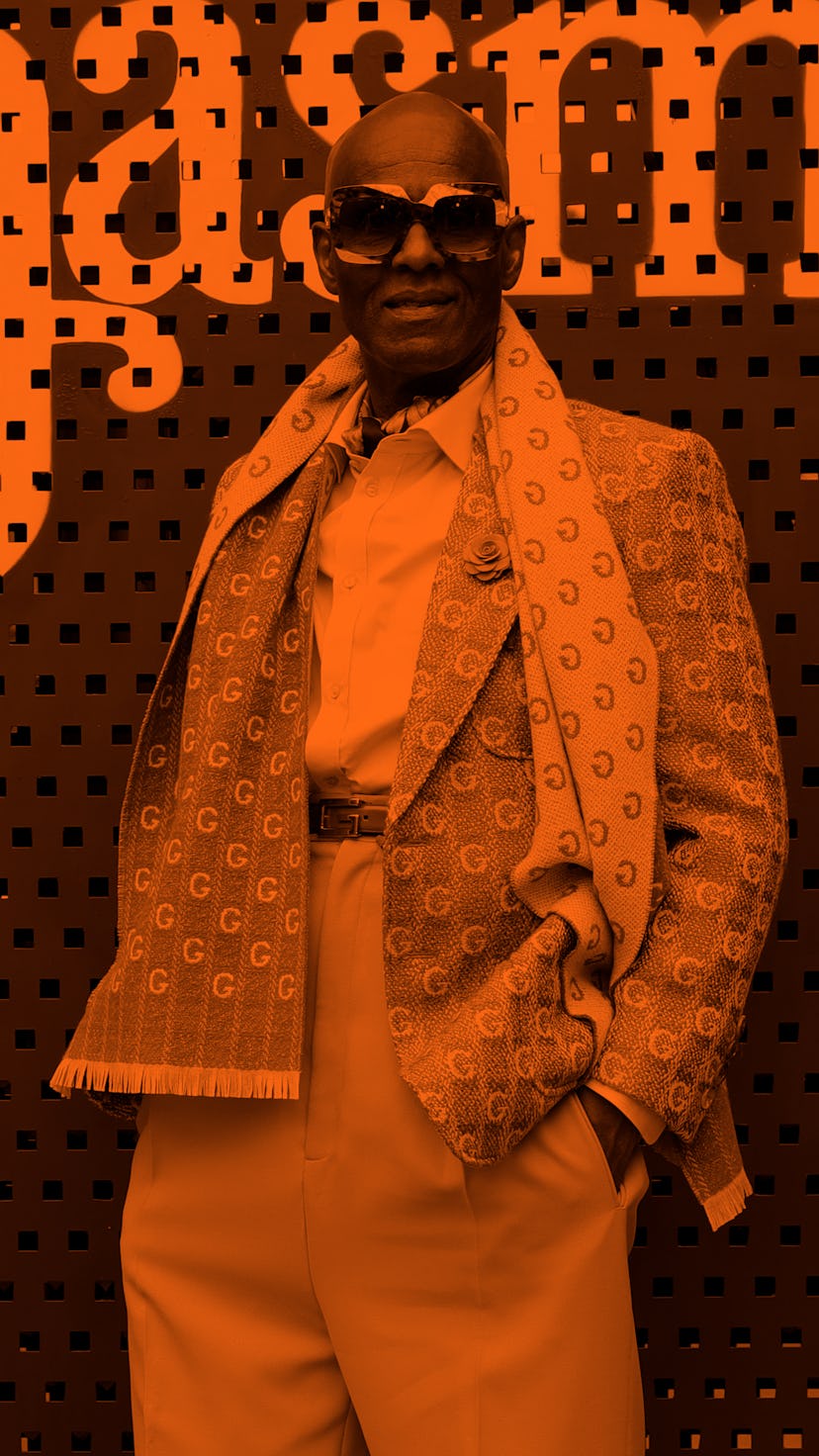
Fashion
Black In Fashion Spotlight: Looking Back On Dapper Dan's Legacy In Fashion
The pioneering tailor introduced a new wave of luxury in the 1980s.
Day's story didn't start in fashion. Growing up poor, he dropped out of school and began doing and selling drugs. After an arrest and rehab, a trip to Africa ignited a spark for art and design. A Liberian tailor crafted Day a suit from scratch, inspiring him to occupy a tailoring space back in NYC.
Dapper Dan's Boutique sat famously on Harlem's 125th street, opening its doors in 1982 to an exclusive clientele of drug kingpins, professional boxers, and hip-hop musicians — many of whom he had connected with during his days of professional gambling and hustling.
Day's 24-hour boutique became synonymous with hip-hop-inspired tracksuits and reversible leather jackets, which often included a Louis Vuitton monogram on one side and high-quality mink on the other. The boutique drew interest from the likes of Big Daddy Kane, L.L. Cool J, Salt-N-Pepa, and more.
Day had largely disappeared from fashion until Gucci was accused of appropriating his old designs. In 2017, the luxury house debuted a puff-sleeved jacket with similarities to a repurposed Louis Vuitton version that Day created for Olympian Diane Dixon, later stating it paid homage to the tailor.
What happened next was the recognition Day ultimately deserved: In a partnership solidified in 2017, Day worked with Gucci on a capsule collection, was the face of its tailoring campaign, and continues to serve as a brand ambassador.
The legendary tailor and couturier's partnership with the Italian house also included the opening of a new Harlem atelier in 2018, where he creates made-to-order pieces on a by-appointment basis with fabrics hand-picked directly from Gucci's factories.
Day's success with Gucci is a full-circle moment, but the timelessness of his work serves as the true testament. From dressing Ashley Graham and Regina Hall for the Met Gala to Saweetie and Doja Cat in Dapper Dan x Gucci for their "Best Friend" video, Day’s impact will never be obsolete.